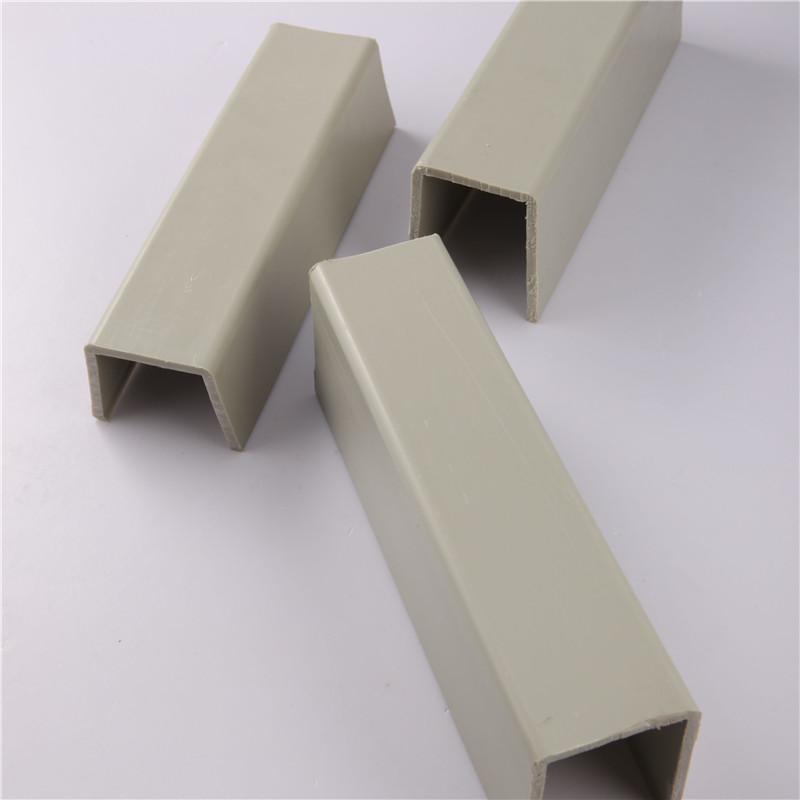Jul . 28, 2024 09:04 Back to list
Understanding CPVC Chemical Pipes and Their Applications in Industrial Plumbing Systems
Understanding CPVC Chemical Pipes Features and Applications
Chlorinated Polyvinyl Chloride (CPVC) pipes are gaining popularity in various industrial applications due to their remarkable chemical resistance, thermal stability, and overall durability. These pipes are specifically engineered to withstand a wide range of corrosive chemicals, making them an ideal choice for chemical processing, plumbing, and industrial applications.
What is CPVC?
CPVC is a thermoplastic material produced by chlorination of polyvinyl chloride (PVC). This process introduces chlorine atoms into the PVC structure, enhancing its thermal and chemical resistance. CPVC pipes are usually yellow or beige in color, setting them apart from regular PVC pipes, and they are recognized for their ability to handle higher temperatures and pressures.
Key Features of CPVC Pipes
1. Chemical Resistance CPVC pipes offer excellent resistance to a diverse range of chemicals, including acids, bases, and salts. This property makes them suitable for applications in industries such as chemical processing, pharmaceuticals, and food and beverage, where the transport of corrosive fluids is common.
2. High-Temperature Tolerance Unlike standard PVC, CPVC can withstand higher temperatures, typically up to about 200°F (93°C). This capability is particularly beneficial in hot water and industrial liquid transport applications, where conventional materials may fail.
3. Lightweight and Durable CPVC is lightweight compared to metal piping, making it easier to handle and install. It is also resistant to various forms of physical stress, which reduces the risk of failure under challenging conditions.
4. Low Thermal Conductivity CPVC has low thermal conductivity, which helps in reducing heat loss during the transport of hot liquids. This characteristic contributes to energy savings and better process efficiency.
5. Ease of Installation The installation of CPVC pipes is generally straightforward, as they can be joined using solvent cement, which allows for quick and efficient assembly.
cpvc chemical pipe

Applications of CPVC Chemical Pipes
The versatility of CPVC pipes enables their use in a variety of applications, including
- Chemical Processing CPVC is extensively used in chemical processing plants for transporting corrosive and hazardous materials. Its ability to withstand aggressive chemicals makes it a preferred choice for manufacturing and processing environments.
- Water Treatment In water treatment facilities, CPVC pipes are utilized for piping systems that handle chemicals such as chlorine and sulfuric acid, necessary for disinfection and purification processes.
- HVAC Systems CPVC is commonly employed in HVAC applications, particularly in the installation of piping systems for hot and cold water distribution, due to its high-temperature resistance.
- Plumbing In residential and commercial plumbing, CPVC provides a reliable option for hot water distribution systems. Its corrosion resistance ensures a longer lifespan, reducing the need for frequent replacements.
- Food and Beverage Industry Because of its resistance to chemicals and ability to meet food safety standards, CPVC is suitable for transporting various food products and additives.
Conclusion
CPVC chemical pipes represent a significant advancement in piping technology, driven by the need for materials that withstand harsh chemicals and high temperatures. Their properties make them invaluable in many sectors, ensuring safety, reliability, and efficiency. As industries continue to evolve and adopt safer, more durable materials, the role of CPVC piping will likely expand, substantiated by its growing acceptance in both commercial and industrial applications.
In summary, whether you are considering piping for chemical processing, plumbing, or HVAC systems, CPVC pipes provide a robust and efficient solution that meets the demanding requirements of today’s industries.
-
Premium CPVC Sheet: High-Temp & Chemical Resistant Solutions
NewsAug.15,2025
-
Durable PPR Pipe for Hot & Cold Water Systems - Easy Install
NewsAug.14,2025
-
Durable HDPE Sheet | Versatile & Impact-Resistant Plastic
NewsAug.13,2025
-
Premium PVC Soft Sheets: Clear, Flexible & Durable
NewsAug.12,2025
-
Premium PVC Round Rods: Durable, Chemical Resistant, Easy to Machine
NewsAug.11,2025
-
PP U-channel: Chemical-Resistant, Lightweight & Durable
NewsAug.10,2025

